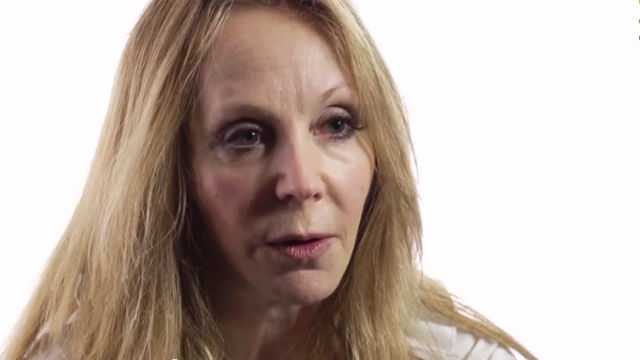The Science Neil deGrasse Tyson Gets Wrong

Star Talk Radio is one of the best things to have ever hit the podcast bin. While I’m a big fan of Cosmos—despite its having the worst music supervisor in the history of television—on Star Talk Tyson gets to completely let loose with his chosen guest or interview subject that week. He puts science in the context of pop culture in a way that’s inviting, informative and entertaining. I’ve never laughed along so hard to any podcast more than his conversation with God, for one.
As Joe Rogan told Tyson in one episode, the podcast format allows others interested in topics you’re interested in to listen to discussions in a genuine, uncensored manner. One week Tyson quipped that Star Talk is a family show before immediately laughing and assuring his audience that wasn’t the case. He will never have this type of freedom on Fox, where many factors are beyond his control, including what companies get to advertise on Cosmos.
Tyson discusses this topic in the second part of the Mythbusters episodes, in which he sits down with Adam Savage and Jamie Hyneman, hosts of the popular Discovery series. The guests had mentioned that they once wanted to test whether over-the-counter teeth whiteners worked as well as prescription formulas. Discovery balked at the notion, stating that toothpaste companies might pull advertising from the network. Savage and Hyneman conceded the point, thinking it better to appease the funders and keep the incredible run alive.
I understand this balancing act well. I worked for two years in commercial operations for Discovery in the late nineties. My job was slightly different: I had to make sure that a Slim Fast commercial wasn’t placed directly after a McDonald’s commercial, for example, or let two carmakers share ad time during a single break. You might think content is king of television, but advertising will almost always win out. And advertisers are always paying attention to details like that.
While Tyson has little control over what Fox allows during commercial breaks, Star Talk features the most advertising I’ve ever heard on any podcast—he barely makes it ten minutes without hearing from an internet website company or online book distributor. Given that its his personal show, I’m guessing he has a say in what gets air time. One company in particular is especially disturbing, given that the bulk of his show is about getting science right.
You can tell that Naturebox is disingenuous from the fact that the company relies on a well-tried advertising technique: blame the ‘other guy’ to bolster an illusion of strength in your product. First it attacks the ubiquitous vending machine; then, you, the consumer, who will be cranky if you don’t eat; finally health food companies who supposedly churn out ‘rabbit food.’ Distance yourself from what’s wrong, then claim you’re right.
Naturebox then bombards you with food ‘designed to leave you full and healthy,’ like ‘Sourdough Cheddar Pretzels’ and ‘Salted Caramel Pretzel Pops.’ If such items don’t sound healthy, it’s for good reason: they’re not.
Let’s see the list of ingredients in the cheddar pretzels: Wheat Flour, Vegetable Oil (may contain one or more of the following: corn, canola, cottonseed, soybean oils), Salt, Whey, Maltodextrin, Cheddar Cheese ([pasteurized milk, cheese cultures, salt enzymes], buttermilk, whey, salt, disodium phosphate), Natural Flavors, Malt Syrup, Autolyzed Yeast Extract, Onion Powder, Garlic Powder, Citric Acid, Sodium Bicarbonate, Yeast, Oleoresin Paprika and less than 2% of Silicon Dioxide (anti-caking agent).
Suffice to say that the Salted Caramel Pretzel Pops—as well as the Black and White Granola, Sweet Blueberry Almonds and Flax Fortune Coins—are equally disastrous from a nutritional standpoint. Naturebox makes sure to tell you what’s not inside (No Trans Fats, Low Sodium, etc) in big bold print while leaving the finer print to reveal what is.
At the very least the company does divulge the (many) different sugars inside its snacks. The dangerously deflective term ‘natural flavors’ is another story altogether. As the Washington Postreported,
Many of the trace-amount chemicals responsible for the natural flavors of foods are so toxic that they would never be approved by the Food and Drug Administration for addition to foods.
Yet the FDA doesn’t monitor the definition closely, because
FDA has not developed a definition for use of the term natural or its derivatives.
That’s straight from the agency’s own website.
For many years I’ve straddled sciences. Having worked in the fitness industry for over a decade, nutrition has been something I’ve studied closely. Yet many such enthusiasts are so focused on their own body that they fail to look at other sciences—neuroscience, cosmology, biology—to understand (or care about) the health of the planet.
On the flip side, as is the case with Star Talk, top scientists and thinkers seem ignorant of the fact that the science of what goes inside of our bodies is as important to our well-being as what goes on outside. It amazes me that someone who knows so much about the complex workings of many universes, and actively promotes honesty and integrity from scientists in their assertions, doesn’t know how to probe his advertisers to see if they’re being equally honest about their claims. It’s a shame that money has to win again.





